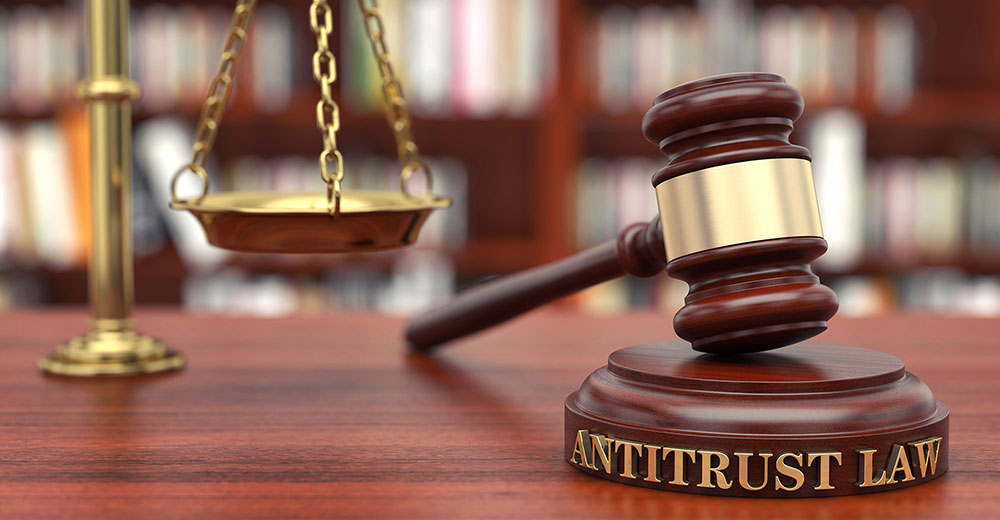After spending more than 25 years in the technology space — including 17 years in San Jose, in the heart of Silicon Valley — few things flabbergast me. But then came Thursday’s announcement from the Department of Justice with its antitrust lawsuit against Apple.
I’m still reeling from it. The lack of logic astounds me. The DOJ’s expansive nature of this antitrust complaint is based on archaic data — as if Ma Bell still operated as it did up to the early 1980s. If the Justice Department uses these primarily false arguments at face value, it’s hard for me to believe it can prevail against Apple.
Let me opine.
Who Are the Victims?
If you look at the lawsuit from a top-level view, Apple’s biggest alleged victims are IT and banking giants. The suit clearly aims to force antitrust legislation reforms Congress hasn’t authorized. Moreover, harm to the consumer is incredibly unclear in this lawsuit.
The DOJ claims Apple uses a smartphone monopoly to lock people into its closed system and undercut competitors — a credible theory that discernibly deserves inspection. Apple controls 55% of the U.S. smartphone market, giving it colossal app ecosystem power. No one doubts that.
But given that the DOJ claims Apple’s monopoly stifles tech innovation, how does the DOJ explain that paid developers on the company’s app store have increased 374% to 5.2 million in the past decade? Apple released AirPods, Vision Pro headsets, and Apple Watch health features like an electrocardiogram (ECG) monitor and fall detector. However, numerous examples of non-Apple industry innovation have occurred over the past few years despite Apple’s closed ecosystem.
Apple Responds
Not surprisingly, Apple responded vigorously to the lawsuit and addressed much of the complaint immediately after the DOJ announced the lawsuit.
Attorney General Merrick Garland remarked that Apple’s iMessage’s “restrictive nature” is responsible for the often terrible image quality of messages that frequently appear on Android smartphones when sent from an iPhone. Apparently, he’s unaware of the news or who’s accountable for the low quality of SMS/MMS between Android and iPhone users. It’s not Apple.
This point also seems to ignore the fact that Apple has already publicly announced that it will embrace the RCS format to improve the messaging experience with non-iPhone users. So, where’s the damage?
The DOJ seems obtuse about this consideration. Instead, it blasts messaging apps. The DOJ asserted that Apple generally makes third-party messaging apps on the iPhone worse. Relative to Apple Messages, the DOJ states that Apple’s messaging app prohibits third-party apps from sending or receiving carrier-based messages, knowingly and deliberately degrading quality, privacy, and security for its users and others who do not have iPhones.
The statement is crazy and without logic. No messaging service has an Apple-limited user base, and most include iPhone apps.
In most respects, it’s almost the opposite. WhatsApp dominates worldwide messaging, and its user base would be much smaller without Apple and the iPhone. Moreover, Apple isn’t responsible for poor-quality Android-to-iPhone photos and videos. SMS/MMS is a dated and primitive format that Apple has tried to correct with its Messages app.
Apple’s Ecosystem Is Terrible for Consumers
From a DOJ perspective, Apple violates section two of the Sherman Antitrust Act by restricting third-party access to hardware and software characteristics it exploits. The DOJ is concerned about digital wallets and Apple’s claimed denial of competing firms’ access to the iPhone’s NFC chip. Since its inception two years ago, companies worldwide have switched to it instead of maintaining their own hardware.
According to the DOJ, there are similar issues with Apple Watch’s preferential treatment of iPhone. The suit claims rival smartwatches have limited software and hardware features.
Android watches operate well with Android phones, making this assertion more challenging. Conversely, Android Watches often cannot work (partially or not at all) with iPhones. Regardless, Apple opened up GymKit so the Apple Watch’s health functions could interact with Peloton exercise equipment.
To be clear, no law requires Apple to build apps for third-party smartwatch connections. Integrators decide. Google and Samsung, the leading integrators, declined for unknown reasons. From that standpoint, the DOJ’s language in the lawsuit looks biased and non-factual.
The Apple Watch is the most popular smartwatch for reasons other than Apple depriving users of the ability to use an Android watch with an iPhone. The iPhone held half of the U.S. smartphone market in 2022 and 62% now.
Apple decided not to make the Apple Watch Android-compatible, as was its prerogative. There have been multiple media reports that Apple worked for years to fix issues without compromising the product.
The DOJ’s specific assertion about the smartphone business meets the legal criterion of 70% and up, implying monopoly. According to a reasonable market definition of smartphone users, nearly as many Android users can enjoy a non-Apple smartphone experience.
Consumer Choice at Risk?
It’s hard to react to a federal lawsuit that includes the language without scoffing: “To protect its smartphone monopoly — and the extraordinary profits that monopoly generates — Apple repeatedly chooses to make its products worse for consumers to prevent competition from emerging.”
I suspect it would be impossible for me to round up three consumers in a 50-mile radius of my home in Silicon Valley who would assert that Apple’s ecosystem approach prevents them from considering non-Apple solutions.
However, one of the DOJ’s primary Apple objections may be debatable. Apple may restrict super applications, which the DOJ describes as “providing a user with broad functionality in a single app.”
Chinese super app WeChat is best known. It’s China’s most popular social media, payment, sales, and chat app. But It’s best known because it’s on the iPhone and other devices. Apple has a WeChat store instead of blocking it.
Another example: Facebook/Meta’s iPhone app is great as it’s a single place for social media, payment, sales, and communications. This point confuses me as no one bans “super apps” (a term I find quite meaningless).
Legal Challenge of Proving Harm
To be sure, this antitrust madness began in the late Trump administration, not Biden’s. But it has quickly become the cornerstone of the Biden administration’s initial Big Tech promises.
Now that the Pandora’s box has been opened, like all antitrust lawsuits, it will take years, and political winds may change. It may fail under Trump and may survive a second Biden term.
A few Silicon Valley attorneys familiar with the matter told me that the DOJ must prove customer injury, which is difficult.
Other smartphone suppliers have raised hardware and service prices due to supply chain concerns over the last four years, so there’s no genuine justification. When Android vendors have devices costing far more, proving customer harm from a $1,500 iPhone may be a legal achievement better suited for David Copperfield than Clarence Darrow.
Furthermore, the DOJ must reconsider its belief that developers have a right to be unrestrained on Apple platforms. Does Costco have a right to offer its products on Walmart shelves? Can Toyota demand that its products be offered at Chrysler dealerships?
The United States Supreme Court has repeatedly ruled that corporations can choose their partners, prices, terms, and conditions. Does the DOJ recognize that?
Chilling Effect on Innovation
Indeed, the fear of DOJ investigations may have prompted Apple’s improvements or changes. Most importantly, the inquiry has made Apple a better company. However, this lawsuit has tremendous destructive potential. Discouragement of companies from making product improvements that benefit consumers will harm competitors who prefer the status quo.
I’m also astonished that a few industry observers are rooting publicly for the DOJ to prevail against Apple, regardless of the actual — or lack of — case from a merits standpoint, as it could dull the company’s competitiveness. Nothing could be more dangerous should this happen if we truly believe that only the most winning and innovative solutions should prevail in any market.
Sadly, the DOJ will likely appeal and waste more taxpayer money when it loses face and, most probably, in my view, the case. As countless internal emails will be disclosed due to the lawsuit, which might be embarrassing, though not illegal, Apple could take a non-trivial PR hit.
Additionally, the expansive nature of the lawsuit appears to be a strategic tactic by the DOJ to force Apple to accept some type of settlement, which the company will not do.
Not Perfect, Not Illegal
Apple is not perfect, and angels do not adorn the company’s executive ranks. The company makes some product decisions — mainly from an end-user upgrade standpoint — that annoy me and force me to pay higher prices. I also don’t like that I can’t access my iMessages on a Windows PC in a robust manner.
However, these are not monopolistic actions, and I can’t fault Apple. I might do the same if I were making those decisions to optimize the power of its ecosystem and product margins.
Yes, Apple is enormously successful, but it has stumbled. Its efforts in electric and automated vehicles failed famously, and it lags in AI. Artificial intelligence’s rapid and unpredictable growth may upend IT businesses and markets. If Apple has actively participated in premeditated and nefarious anti-competitive actions that have harmed the consumer, the DOJ will need to produce stronger evidence than what we’ve seen thus far.
By the end of this suit, Apple’s dominance may look as outdated as IBM’s did after the company dominated the PC business during the 1980s and 1990s, only to jettison it to Lenovo in 2005.
The DOJ would be well advised to remember those lessons.























































